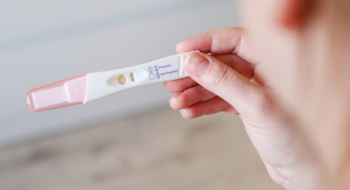Eating right is always important, but it’s especially vital during cancer treatment. Your body needs the right balance and amount of food when you’re undergoing chemotherapy, radiation therapy and other cancer-fighting treatments.
“You definitely want to maintain a healthy body weight if at all possible,” says Salem Zeglin, a registered oncology dietitian who provides custom, one-on-one support to help cancer patients meet their unique nutritional needs at Tidelands Health Cancer Care Network, our region’s most comprehensive cancer provider and a collaboration with MUSC Health’s Hollings Cancer Center, a National Institutes of Cancer-designated cancer center.
“Eating well helps you maintain your energy to get through treatment, and it can help to decrease side effects,” she says.
Not always easy
But eating well isn’t always easy during cancer treatment. In fact, eating anything at all can be a challenge.
“Patients undergoing chemotherapy or radiation therapy can experience side effects such as weight loss, decrease in appetite and changes in their taste and smell,” Zeglin says. “Plus, some later-stage cancers combined with treatment can cause your metabolism to speed up so your body uses calories and protein faster. Referred to as cachexia, this can contribute to a loss of fat and muscle and can happen even if you’re eating your normal amount.”
Featured Article
Anti-inflammatory diet tied to lower risk for heart disease, Alzheimer’s, cancer
Read ArticleSome cancer treatments cause gastrointestinal symptoms such as nausea, vomiting, diarrhea and constipation that can make eating unpleasant. Zeglin says the emotional effects of cancer treatment can also lead to a lack of desire to eat, though in some cases cancer treatment can cause patients to gain weight, too.
In general, Protein and calorie requirements can be higher among cancer patients, Zeglin says. It’s important to fill your plate with fruits, vegetables, lean proteins and whole grains to ensure you are receiving adequate calories and protein to achieve your treatment goals.
Nutritional needs can vary based on the type of cancer and other factors, which is why it’s important to work with your care team to develop a plan that’s right for you.
Customized approach
At Tidelands Health, a multidisciplinary team of physicians and experts works collaboratively to customize a care and treatment plan to meet each patient’s needs. Oncology dietitian services are part of the comprehensive care that patients can receive.
“We tailor our service to each patient’s needs,” Zeglin says. “A breast cancer patient may have different needs than a patient with gastrointestinal cancer. Patients who have head and neck cancers who cannot eat by mouth will also need nutritional support with enteral or parenteral feeding.”
Enjoying this story? It’s free to republish. Learn more.
The goal is to give patients the tools they need to be healthy during cancer treatment and into survivorship.
“We want them to have a long, healthy, fruitful life after treatment,” she says.
The Tidelands Health Cancer Care Network is the only triple-accredited cancer center in our area. The program is accredited by the American College of Radiology, the National Accreditation Program for Breast Centers and the Commission on Cancer, a program of the American College of Surgeons.





